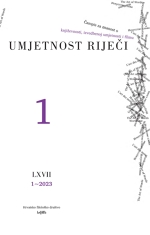Too tidy to dance: Edith Wharton’s "Twilight sleep" and the domestication of scientific management
Too tidy to dance: Edith Wharton’s "Twilight sleep" and the domestication of scientific management
Author(s): Brian WillemsSubject(s): Management and complex organizations, Film / Cinema / Cinematography, Theory of Literature, American Literature, Sociology of Literature
Published by: Hrvatsko filološko društvo
Keywords: scientific management; Edith Wharton; twilight sleep; Frank Gilbreth; Lillian Gilbreth;
Summary/Abstract: This essay looks at how scientific management, initially meant to increase efficacy in the workplace, left the factory floor and made its way into the home. Included here are readings of Frederick Taylor’s scientific management, Lillian and Frank Gilbreth’s concept of the therblig, as well as the Gilbreth children’s reports of home life in Cheaper by the Dozen (1948) and Belles on Their Toes (1950) (and their film adaptations). Edith Wharton’s 1927 novel Twilight Sleep challenges the spreading of scientific management into the home, seen in particular in the book’s treatment of the early 1900s invention of twilight sleep, a medical procedure meant to optimize childbirth by injecting the mother with a combination of scopolamine, which induces amnesia, and morphine. Yet the thesis of the essay is that the novel actually depicts the horrors of scientific management in order to suggest a path forward, that a change in social relations is more fundamental than a change in economic ones.
Journal: Umjetnost riječi
- Issue Year: 2023
- Issue No: 1
- Page Range: 39-57
- Page Count: 19
- Language: English

